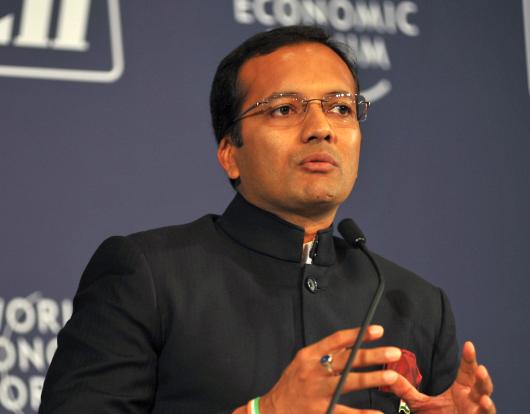
India Inc needs better governance in deciding compensation of top management.
Are India Inc's CEOs overpaid? The prime minister raised the issue a couple of years ago; the Companies Act has sought to cap it; the regulators (the Reserve Bank of India and, more recently, the Securities and Exchange Board of India, or Sebi) have voiced their concerns; and proxy advisory firms have been opposing it with unfailing regularity at shareholders' meetings (since September 2011, Institutional Investor Advisory Services has recommended voting against 39 compensation-related proposals from various companies).
All these, however, seem to have had no effect on the occupants of India Inc's corner offices.
There are two reasons for this: one, the pay packets of all of them are well within the limit of 5 per cent of the net profit - as mandated by the Companies Act.
A Business Standard Research Bureau analysis showed that the average salary of the 100 best-paid directors is only 1 per cent of their respective companies' net profit. So, legally, they are on sound footing.
The second reason India Inc isn't losing sleep over the growing buzz against high salaries of CEOs is that promoters, who control most of the companies, treat shareholder activism as nothing more than a nuisance.
Data show that India Inc has been hugely generous in rewarding its top brass. In fact, a study conducted by Aon Hewitt showed how compensation in India is inching closer to global executive pay, even though the size of Indian companies is still minuscule compared to global standards.
...

The median pay for a CEO in India on a purchasing power parity basis was at nearly $3.5 million in 2011-12 (growing steadily at 15-18 per cent in the past few years), in companies with more than $2 billion in revenues. In the US, the figure is nearly $7 million.
Some of the leading lights of Indian companies say the "roadshows" against high CEO pay in India is meaningless, since companies know best what to pay their top executives.
Demand for CEO talent far outstrips supply in the country and the availability of leadership talent in India, especially that high up the ladder, is very low, compared with mature markets.
Also, unlike earlier years, organisations now have no issues with professionals making money as long as they perform and give the desired results.
Moreover, Indian CEOs are spoilt for choice with most having at least three job offers or feelers coming their way at any given point in time.
"It's preposterous to think that all of us are creating elaborate webs of deceit to mask big payouts or paying through our nose to our top executives just for fun," says the CEO of a large diversified firm.
The CEO adds in any case, he has enough legal legroom to give higher pay to his top executives who are delivering the goods.
...

He also argues say-on-pay (right of shareholders to have a say on management compensation) takes away the fundamental right of every board - that is to determine the payment it wants to give to attract the best talent. Besides, it takes away the board's prerogative to manage.
He has a point but it's also a fact that opposition to "obscenely high" CEO salaries is growing by the day, and India Inc just can't afford to dismiss the arguments against their opaque compensation practices.
Here is one argument. Often top executives are given pay hikes that have no relation with the performance of the company or its stock price.
For example, many CEOs received over 30 per cent pay hikes in 2011-12 - the period during which the net profits of the companies they run went up by an average 5 to 10 per cent. This is precisely the reason that say-on-pay is gaining rapid popularity in the West.
Impressions about unethical compensation practices by India Inc are also gaining ground by revelations that India has the widest gap between salaries of CEOs and entry-level graduates.
Aon Hewitt, for example, has shown that in India, a CEO's compensation is on an average 675 times of the minimum wage earned by an entry-level employee.
...

The US comes second with a 423 times' difference, while in China, the ratio is 268 times. The "social inequality" is prevalent within top management as well - for example, India's highest-paid executive.
Jindal Steel & Power's chairman and managing director Naveen Jindal gets around 25 times what the next highest-paid Jindal Steel director does.
The other bone of contention is the link between pay and performance. While many Indian companies have moved to a higher variable pay component, there is enough anecdotal evidence on how senior executives are still insisting on at least 75 per cent fixed pay and fewer performance-linked benefits. And companies are giving in to these demands.
The moot point is that India Inc should not have any problem in more disclosures regarding pay, since no one can argue in favour of a skewed and non-transparent remuneration process.
Consider the India Board Report by Hunt Partners, AZB and PricewaterhouseCoopers that says in many Indian companies, there is no real governance around how top managers were paid.
Decision-makers and recipients are not at arm's length, and boards are unable (or incapable) of judging remuneration decisions objectively.
In that context, Sebi's insistence on a remuneration committee under Clause 49 of the listing agreement makes sense.